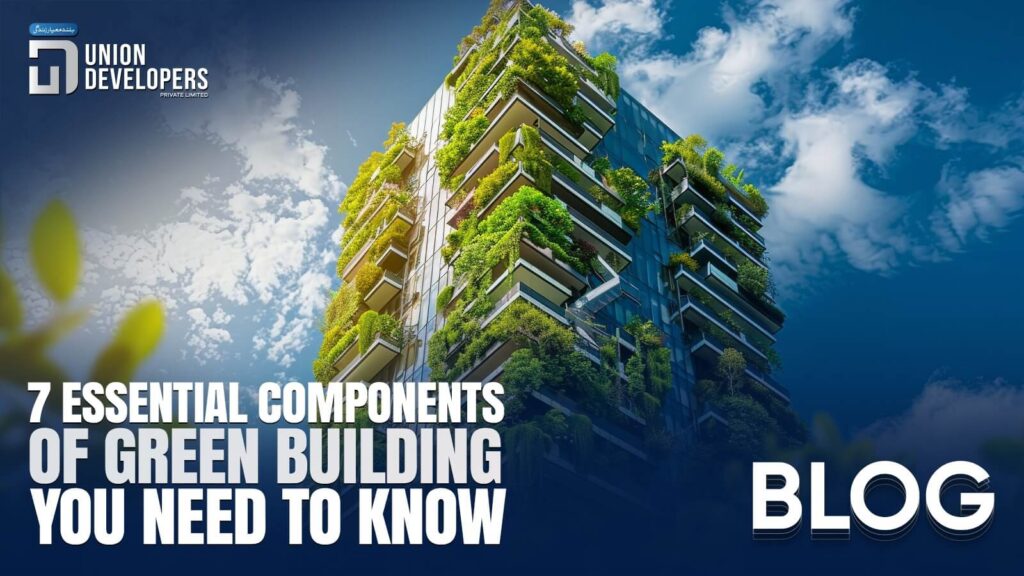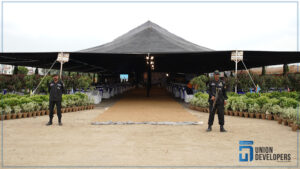Buildings are one of the primary sources of pollution. Materials we use in the construction of buildings produce environmental impacts like pollution through slurry and waste, carbon footprint, and power and water consumption. There is approximately 39% of energy-related CO2 emissions. However, there is a way we can easily reduce the negative impact of building on the environment, which is very polluted.
By going green, we can save our planet. Yes, the construction of green buildings will help to reduce the carbon footprint. Also, living in a green building helps save the world from bad impacts.
What is a Green Building?
The word green building concept does not mean that the building’s colour is green. Neither the green building is surrounded by green plants or greenery. Green building is more than just planting trees and plants. It is a building that protects us, preserves its natural environment, and also serves its purpose.
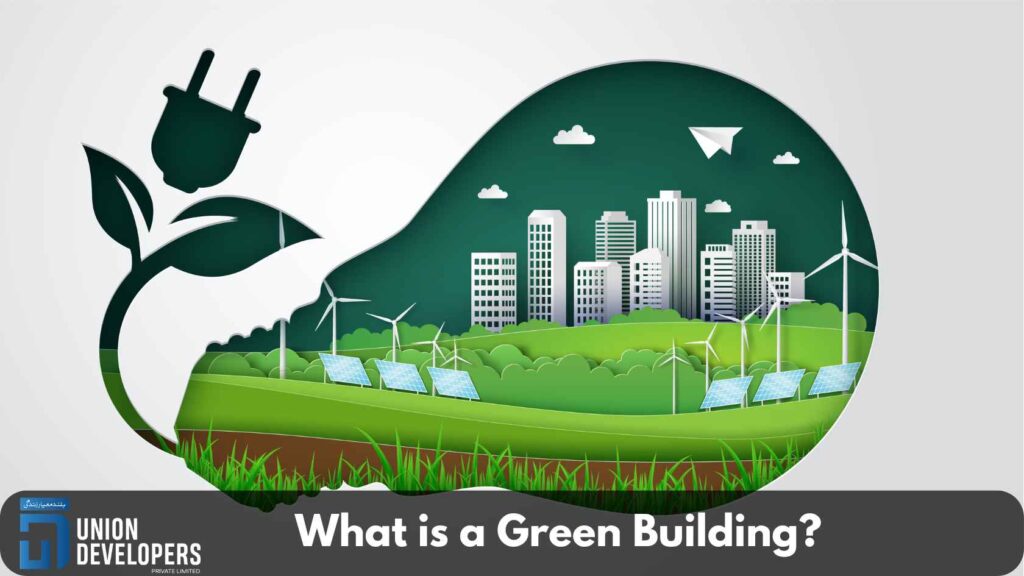
According to the U.S. EPA, green building is the practice of using processes and creating structures that are environmentally responsible and resource-efficient. This should be throughout a building’s lifecycle, from sitting to design, operation, construction, maintenance, deconstruction and renovation.
The green buildings are constructed and designed with efficient construction practices and materials to create a positive impact on the climate. According to Leadership in Energy and Environmental Design, green buildings use 25% less energy and 11% less water than commercial buildings.
Benefits of Green Buildings
Any building can be a green building, whether it is a school, an office, a home, a hospital or any type of structure. There are many reasons to build green buildings and get the benefits from them.
Social Benefits: Firstly, green buildings are healthy buildings and improve the well-being of the residents. It enhances the health, comfort, and well-being of individuals. These buildings boost the aesthetics and ambience qualities.
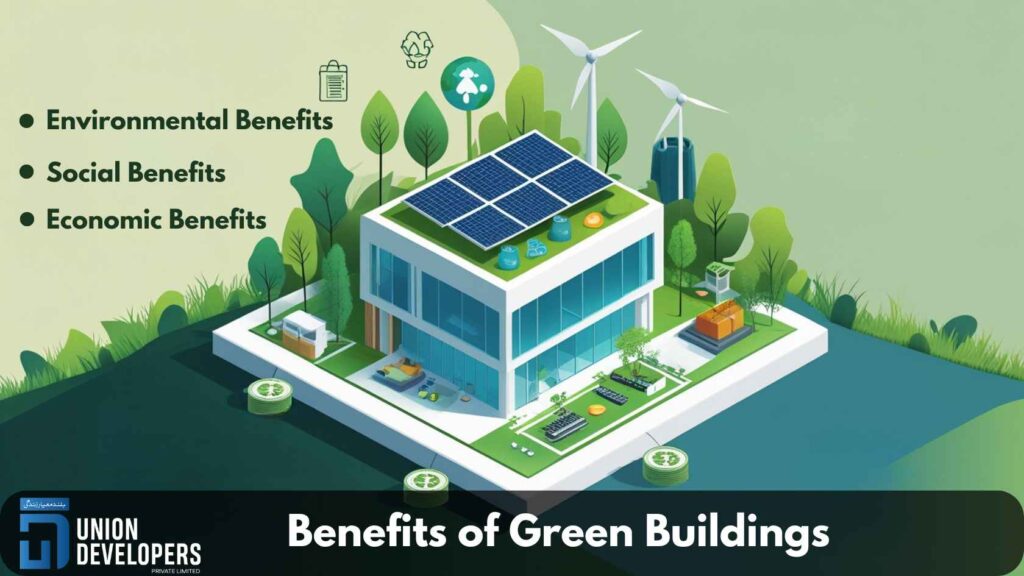
Environmental Benefits: Green buildings are also eco-friendly and sustainable buildings. Green buildings protect ecosystems and biodiversity and restore natural resources. These eco-friendly buildings also improve the water and air quality and prevent global warming.
Economic Benefits: Conventional buildings are quite expensive compared to green buildings. Green building uses fewer resources, such as energy and water, etc. It reduces operating costs such as infrastructure costs and energy costs, etc. Green buildings create, shape and expand markets for green services and products. It also improves worker’s productivity and the ROI of the buildings.
The 7 Components of Green Building
1. Eco-friendly Buildings Materials
Using sustainable building materials for your construction and design reduces waste. Also, it is energy-efficient, resource-efficient, cost-effective and sustainable. The recycled and reused materials produce no waste, which is safe for humans and the environment.
2. Renewable Energy
The green building movement improves the energy efficiency of homes, buildings, and various appliances and components. Examples of renewable energy resources are solar panels, recycled steel, reclaimed wood, etc. Efficient cooling and heating systems, like energy-efficient windows, are used to ensure better air quality.
3. Better Indoor Air Quality
Indoor air quality is another component of sustainable buildings. These buildings improve the air quality a lot and protect residents’ health. It also improves comfort and productivity and also enhances the durability of the house structures. An aluminium weather-resistant insulated access panel and a green roof are some of its features.
4. Waste Reduction
Reducing waste is also one of the major components of a green building. In the construction, recycled and reused materials are used to minimise waste, greenhouse gas emissions and energy consumption.
5. Water Efficiency
Green buildings also save water and protect the environment. In Pakistan, pollution and unhygienic water are the major issues. Installing water-efficient appliances helps us to protect the environment.
6. Sustainable Development and Smart Growth
The development of sustainability in green building in Pakistan hasn’t stopped, and it will be continuous. The communities are educated about how to reduce toxic pollution in their local environment. It develops healthy communities, builds strong neighbourhoods, and promotes eco-development.
7. Toxic Reduction
Products should be used wisely because toxic substances will harm the environment. The products with the EPA’s DfE logo are recommended to use because these products meet the safety standards.
Material Selection
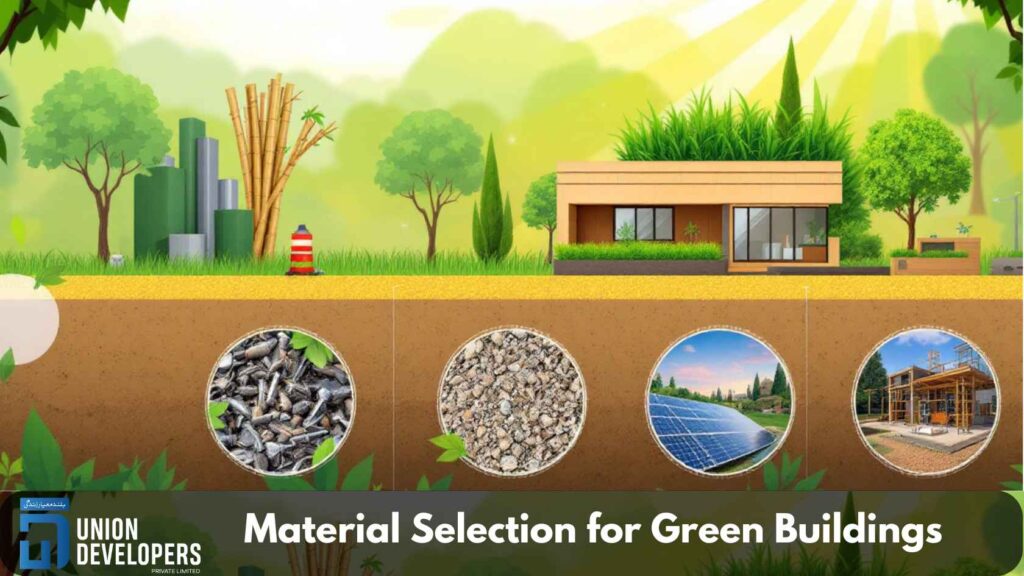
When building green structures, it is also important to consider construction materials. It is now best to use eco-friendly materials for the construction of the building in Pakistan. Now the real estate industry is also moving towards eco-friendly construction materials. These materials have a lower impact on the environment than conventional building materials like steel or concrete. The durable products are made for sustainability and also prefabricated or recycled materials. Here is the list of sustainable materials for the construction of the buildings.
- Wood
- Bamboo
- Straw bales
- Recycled steel
- Recycled plastic
- Rammed earth
- Hempcrete
Also Read: A Comprehensive Guide to House Design in Pakistan
Now, let’s have a look at the most common green building standards all over the world:
Lastly,
Are you looking for reliable construction or architectural services in Pakistan that can use sustainable materials and resources? Well, Union Developers provides exceptional green architectural design and construction for commercial and industrial projects in Pakistan. At Union Developers, we understand the urgency of eco-friendly material use and green building construction. We adhere to the green building standards in Pakistan and try our best to save the environment during our construction process.


